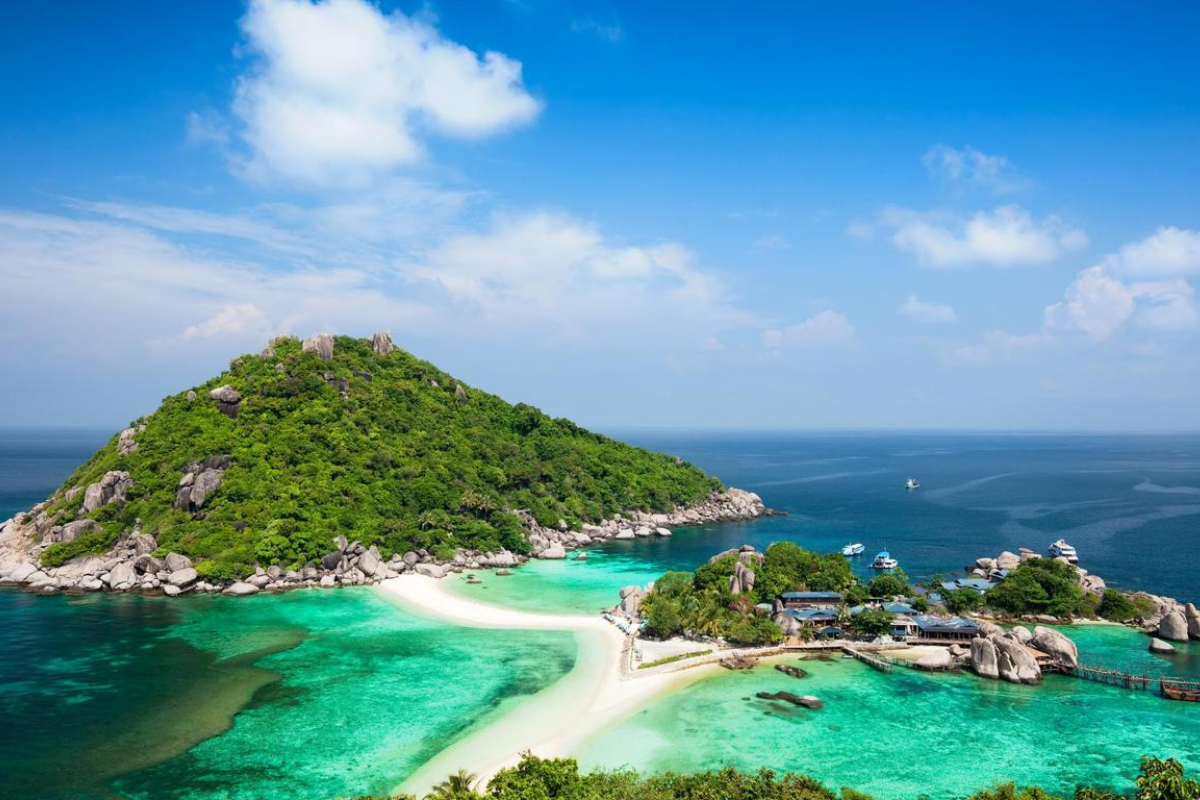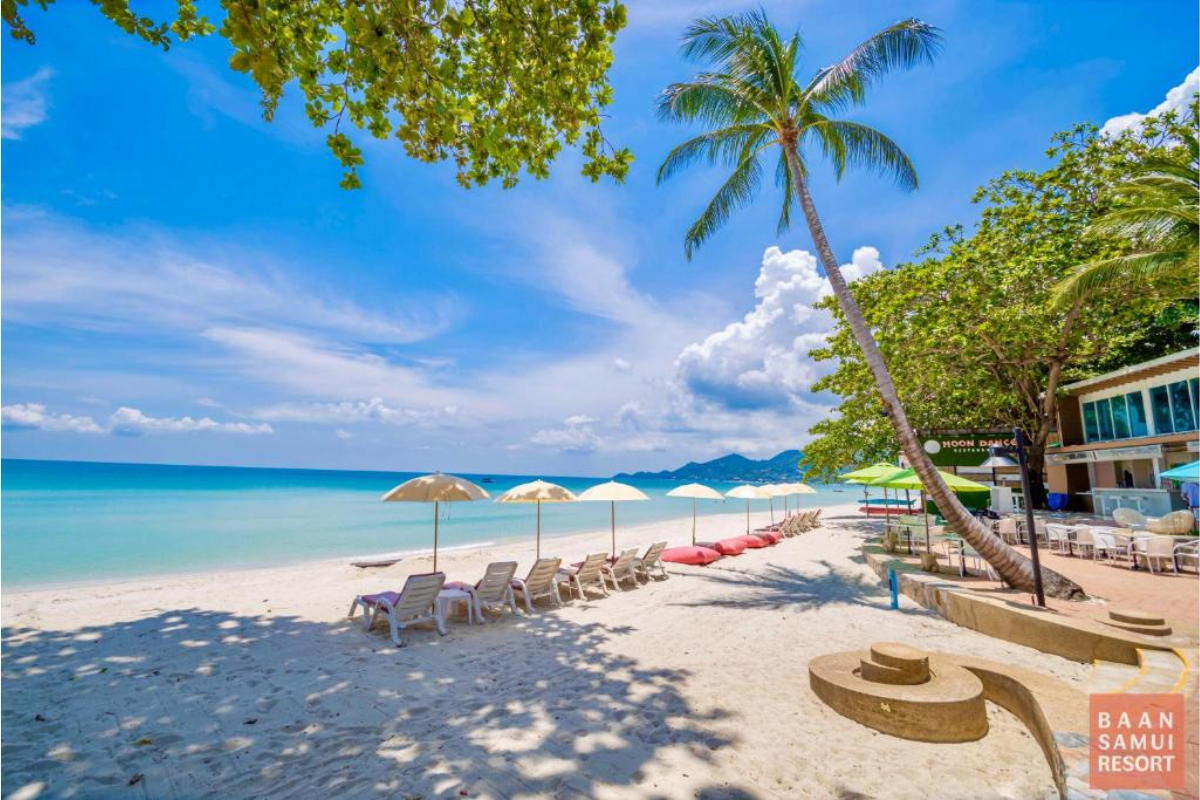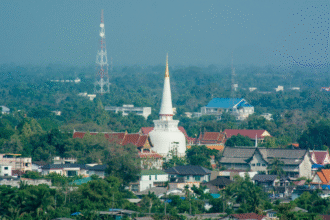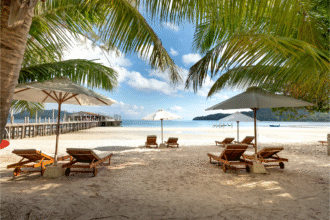Koh Samui, Thailand’s second-largest island, is famous for its idyllic beaches, tropical climate, and thriving expat scene. Once known primarily as a backpacker haven, Samui has transformed into a sophisticated property investment destination, attracting retirees, digital nomads, and high-net-worth individuals.
For first-time investors, understanding the local market dynamics, legal framework, and lifestyle appeal is crucial before making a purchase. In this guide, we break down everything you need to know about investing in Samui properties in 2025 — from ownership regulations to market trends and practical buying tips.
Why Koh Samui Is a Prime Destination for Property Investment
Samui’s property market has grown steadily over the past decade, supported by tourism, infrastructure improvements, and increasing international demand. But what makes it stand out from other Thai islands like Phuket or Krabi?
1. Consistent Tourism Appeal
Samui continues to attract millions of visitors annually, drawn by its luxury resorts, vibrant nightlife, and wellness retreats. Popular areas like Chaweng and Bophut cater to short-term tourists, while quieter regions such as Maenam appeal to long-stay visitors and retirees.
This year-round flow of visitors creates strong demand for vacation rentals, making Samui particularly attractive to investors looking for rental yields.
2. Balance Between Development and Nature
While Samui is developed enough to offer modern amenities, it retains much of its natural charm. Lush coconut groves, mountain viewpoints, and clean beaches make it appealing to buyers seeking an authentic tropical lifestyle.
3. Strong Expat Community
The island hosts a growing international community, including retirees, digital nomads, and business owners. This steady expat presence ensures demand for long-term rentals and resale properties.
With its mix of lifestyle benefits and solid investment fundamentals, Samui properties continue to attract attention from both seasoned and first-time investors.
Legal Considerations: What Foreign Investors Need to Know
Thailand has clear laws regarding foreign property ownership, and understanding them is essential before committing to any purchase.
1. Freehold Ownership of Condominiums
Foreigners can legally own condominium units under a freehold title, provided that foreign ownership in the building does not exceed 49%. For first-time buyers, condos are the simplest and most secure way to enter the Samui property market.
2. Land and Villa Ownership
Foreigners are prohibited from directly owning land in Thailand, which includes villas built on private plots. However, there are legal structures that allow foreigners to control villas:
- Long-Term Leasehold Agreements: Typically 30 years, with the option to renew, these agreements are the most common method of villa ownership for foreigners.
- Thai Limited Company Ownership: Setting up a Thai company to purchase land is another route, but it requires careful legal structuring to comply with Thai corporate laws.
3. Due Diligence Is Essential
Working with an experienced real estate lawyer is non-negotiable. Key checks include verifying the land title deed (Chanote), ensuring proper zoning for construction, and reviewing building permits.
Best Locations to Invest in Samui
Choosing the right location can significantly impact your rental returns and long-term property value. Here are Samui’s most sought-after areas:
Chaweng
Samui’s busiest area, Chaweng, is ideal for investors targeting short-term rentals. Its lively nightlife, shopping, and beach clubs make it a favorite among tourists. Expect higher occupancy rates but also more competition.
Lamai
Lamai offers a relaxed atmosphere with wellness resorts and yoga retreats. Popular with long-stay visitors, Lamai is perfect for investors seeking a balance between rental yield and lifestyle appeal.
Bophut & Fisherman’s Village
A charming mix of traditional Thai culture and modern cafes, Bophut attracts families and expats. Villas and townhouses in this area often secure stable long-term rentals.
Maenam
Known for its serene beaches and family-friendly vibe, Maenam is gaining popularity among retirees and digital nomads. Prices are still reasonable, making it a good option for long-term appreciation.
Choeng Mon
This area caters to the luxury market, with high-end villas and boutique resorts. Buyers here are often lifestyle-focused, though rental yields can also be lucrative in the premium segment.
Types of Properties Available in Koh Samui
1. Condominiums
Condo ownership is straightforward for foreigners, making it ideal for first-time investors. Many condo developments offer resort-style amenities and professional property management services.
2. Villas
Samui is renowned for its luxury villas, often featuring sea views, infinity pools, and private gardens. Villas can generate strong short-term rental income, especially in tourist hotspots.
3. Land Plots
For experienced investors, purchasing land and developing custom villas can yield higher returns. However, this requires careful legal structuring and reliable construction partners.
4. Boutique Resorts & Commercial Properties
Entrepreneurs sometimes invest in boutique resorts or small hotels, taking advantage of Samui’s thriving tourism sector. This is a more complex venture but offers substantial returns when managed well.
Samui Market Trends in 2025: What Investors Should Expect
The Samui property market is showing positive signs of growth in 2025, driven by tourism recovery and changing lifestyle trends.
- Luxury Villa Demand Is Rising – High-net-worth buyers, particularly from Europe and China, are seeking private villas with premium amenities.
- Long-Stay Rentals Are Increasing – Digital nomads and retirees prefer quiet neighborhoods, boosting demand for furnished villas and apartments.
- Price Appreciation Is Steady – While Samui remains more affordable than Phuket, property prices are gradually climbing, making now an opportune time to invest.
Practical Tips for First-Time Investors in Koh Samui
1. Work with Reputable Agents and Lawyers
Choose licensed real estate agents and experienced lawyers who specialize in foreign transactions. A trustworthy team will protect you from legal pitfalls and ensure a transparent buying process.
2. Visit the Property Personally
Before committing, spend time on the island to experience different neighborhoods. Inspect the property, check its surroundings, and talk to locals or other expats.
3. Plan for Ongoing Costs
Factor in maintenance fees, property management charges, and potential renovation costs, especially for villas.
4. Consider Rental Management Services
If you’re buying for investment purposes, partner with a reputable rental management company to handle marketing, bookings, and guest services.
5. Research Seasonal Occupancy Trends
Rental demand peaks during high tourist seasons (December to April). Understanding these trends helps you forecast realistic rental yields.

Samui Lifestyle Benefits: More Than Just an Investment
Investing in Samui properties isn’t just about financial returns — it’s also about enjoying an exceptional quality of life. Residents benefit from:
- World-Class Amenities
The island is exceptionally well-equipped to support a comfortable and convenient lifestyle, featuring a robust infrastructure that includes reputable international schools with diverse curricula, modern state-of-the-art hospitals, and premium supermarkets and gourmet grocers that cater specifically to the sophisticated tastes of a growing global community. - Health & Wellness Scene
Koh Samui has firmly established itself as an internationally renowned wellness haven, where a health-conscious lifestyle is woven into the island’s fabric. Residents can easily access a wide array of serene yoga retreats, specialized holistic detox centers, and luxurious award-winning spas dedicated to physical and mental rejuvenation. - Cultural Experiences
Beyond the stunning beaches, you can immerse yourself in a vibrant tapestry of authentic Thai culture. Explore the bustling energy and aromatic street food of the local night markets, discover the serene tranquility of ornate golden Buddhist temples, and witness the traditional way of life that continues to thrive in charming local villages. - Outdoor Activities
With the island’s spectacular natural landscape as your personal playground, an active outdoor lifestyle becomes an effortless part of your daily routine. Many homeowners start their mornings with beach yoga on pristine sandy shores, spend their afternoons snorkeling in crystal-clear waters, or go hiking through lush jungle interiors to discover hidden waterfalls.
Many buyers view their Samui property as both a holiday home and a long-term retirement option, giving them the best of both worlds.
Is Investing in Samui Right for You?
Koh Samui’s property market continues to thrive, offering a rare combination of natural beauty, lifestyle appeal, and solid investment potential. Whether you’re buying for rental income, retirement, or as a vacation home, careful research and legal due diligence are key to making a successful purchase.
If you’re ready to explore the possibilities, take the time to learn more about Samui properties and discover why so many international buyers are choosing this tropical paradise for their next big investment.







